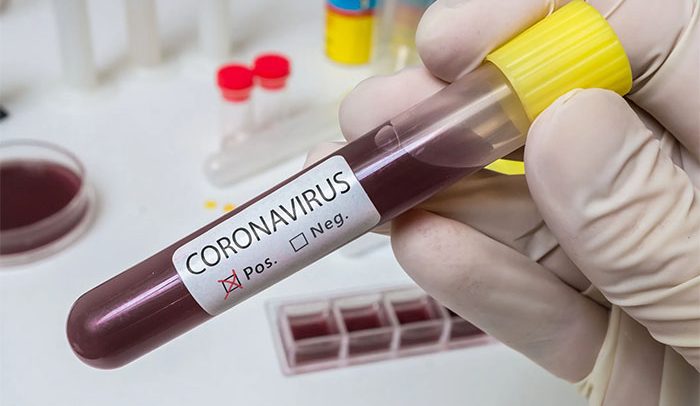The President of the Republic of Ghana, Nana Addo Dankwa Akufo-Addo, in a recent address to update Ghanaians on measures taken to curb the deadly COVID-19, mentioned “Weija Gbawe” as one of the hotspots for the coronavirus pandemic in Ghana.
“We will continue to monitor closely events in some hotpots in the Greater Accra Metropolitan area like Weija Gbawe, Ga East and Ayawaso East Municipalities and Tema Metropolis” he said.
From a careful study of the Gbawe community, there is no doubt that it has become one of COVID-19 Ghana’s hotspot. The fact still remains that if a community is underdeveloped and also residents do not engage in proper hygienic practices, then the spread of diseases become easy and fast.
Gbawe is a community in the Greater Accra region made up of settlers of diverse
Ethnic and social backgrounds. About 80% of residents there are from the Greater Accra Region, and the other 20% being people with other parts of the country.
From a critical look, Gbawe is relatively, a small town in geographical size but very densely populated. This makes the community packed with a lot of people with very few social amenities. Houses and other social facilities are scattered and not properly arranged.
In spite of all these challenges, the people of Gbawe share a family-like attitude, share a beautiful culture and are hospitable. With this little background on the Gbawe community let’s try to juxtapose it with a little knowledge on Coronavirus then analyze why Gbawe is one of Ghana’s hotspot.
COVID-19
Coronavirus is a large family of viruses that causes illness ranging from Middle East Respiratory Syndrome (MERS-COV) to Severe Acute Respiratory Syndrome (SARS-COV). Reports suggest that COVID-19 infection can cause mild to severe diseases but can be fatal in some cases. Commonly observed symptoms include fever, cough, shortness of breath, sore throat and breathing difficulties.
In more severe cases, infections can cause pneumonia or severe acute respiratory syndrome particularly in those with other chronic underlying health conditions. People of all ages can be infected by the new coronavirus. Older people and people with pre-existing health conditions such as asthma, diabetes, heart disease etc, appear to be more vulnerable to becoming severely ill with the virus.
The virus that causes COVID-19 is mainly transmitted through droplets generated when an infected person coughs, sneezes or speaks. These droplets are too heavy to hang in the air so they quickly fall on the floor or surfaces. You can be infected by touching a contaminated surface and then touching your eyes, nose or mouth before washing your hands.
GBAWE AS A HOTSPOT
Most residents in a community like Gbawe barely practice social distancing. Houses are packed together, bad road layout and people being around you is no new thing.
When this new coronavirus came, it has been quiet difficult practicing social distancing in Gbawe. Several houses in Gbawe are closely packed together with lots of people, mostly ten to fifteen people live in a household and share every facility together including same bathroom, water, place of convenience and sometimes kitchen. This makes distancing yourself difficult as there is a high possibility of having to use the same facility and possibly be in a queue to do so.
Another challenge is, most houses in Gbawe lack a personal place of convenience therefore they resort to use a public places of convenience. And every morning, these public places get packed with people who hardly wash their hands after using the place even though there is a provision for handwashing in some of these places.
It is common to witness a queue at a place of convenience inside Gbawe and it is not uncommon to see people walk out of the place without any thought of handwashing. Such people meet others on their way and greet them without hesitation. Apparently, not everyone in Gbawe has the hand washing attitude which is a necessary precaution to stay safe. This means that an infected person who visit this place is capable of transmitting the disease to almost everyone who visits the place that day.
In an interview with the Ghana News Agency (GNA) in Accra, the Municipal Chief Executive (MCE) for Weija Gbawe, Mr. Patrick K. B. Kumor, mentioned a few things that worth touchin on.
The MCE mentioned that a sensitization exercise was carried out by the Assembly to educate the citizenry on the prevention of the spread of the virus and to ensure that the precautionary measures were adhered to.
He also mentioned that the Ministry of Local Government and Rural Development supported the Assembly with some Veronica Buckets, hand sanitizers, tissue rolls and liquid soap to complement their effort in the fight against the pandemic. He added that these items were distributed among some health Centers, markets, lorry station, chief’s palace and other public stations.
Mr. Kumor also added that the Assembly received 2,000 packs of hot meals daily as one of the several government interventions in helping the vulnerable and that raw food items were distributed among the vulnerable households.
It is of a good course that the MCE as well as the government body is showing concern but from enquiries not all in Gbawe benefitted from these equipment and help. And there is the need to sustain the gesture to ensure it spreads down to the households and persons who actually need them but cannot afford the cost.
In places where the Veronica Buckets have been positioned, like the Gbawe main station, residents actually put it to the best use. This is a good sign and medical experts have suggested that for the community to be safer, more of such interventions should be available and more safety precautions taken.
By Rita Crentsil, Student journalist, Ghana Institute of Journalism (GIJ)


Comments are closed.